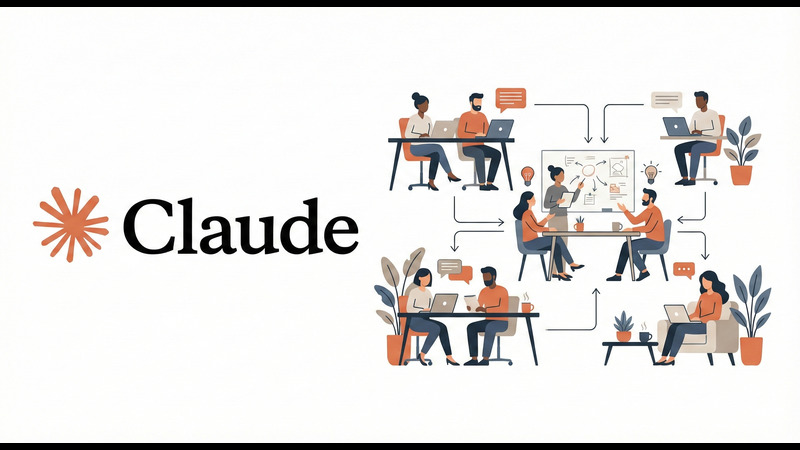The AI agent sector is in chaos—and if you’re not paying attention, you’re missing out on massive opportunities… or walking into a disaster.
In the past week alone, the market value of AI agent tokens dropped by 7% to $6.7B. Some projects saw explosive 160% growth, while others crashed nearly 50%.
So, what the hell is happening? Let’s break it down.
The Big Winners: Who’s Making Bank?
Even in a market downturn, some AI agent tokens skyrocketed:
✅ Venice Token (VVV): 💥 +160% in just 7 days.
✅ VADER: ⚡ Up 79.4%—breaking $0.027.
✅ SPORE: 🔥 Climbing 66.7%—now at $0.01433.
✅ Swarms: 🐝 +39.6%, priced at $0.0545.
✅ ai16z: 🧠 +23.9%, sitting at $0.392.
If you picked the right project, your portfolio is looking spicy right now.
The Brutal Bloodbath: Who’s Getting Wrecked?
🔻 MAX: -47.2% 😱 Now trading at just $0.01388.
🔻 YNE: -44.0% 💀 Current price: $0.02155.
🔻 FXN: -31.8% 🩸 Sitting at $0.00655.
The question is: Are these dead projects… or discounted opportunities? 👀
The Most Hyped AI Agent Projects Right Now
Beyond price action, these projects are shaping the future of AI agents:
🔹 ai16z (Now ElizaOS) – A decentralized AI trading fund backed by Solana. Marc Andreessen (yes, the Andreessen from a16z) even posted about it.
🔹 Swarms – A multi-agent AI framework running 45M+ AI agents. The founder? A high school dropout turned AI genius.
🔹 Olas – Just raised $13.8M to build an AI agent app store where users can own their AI bots.
🔹 ALCH – A no-code AI Agent launchpad that lets anyone create apps (including games & social platforms). V3 just dropped!
🔹 Orbit – An AI proxy for DeFi, backed by Coinbase investors. Version 2 is launching soon.

So… Are We in an AI Agent Bubble?
The AI agent sector is a wild west right now. Speculation is through the roof, with social media buzz dominated by meme-worthy tokens:
📢 FARTCOIN (Yes, that’s real) – 9.79% of all AI agent discussions.
📢 AIXBT – 8.1% share of the conversation.
📢 HENLO, VIRTUAL, ai16z – Rounding out the top 5.
Are we witnessing the early days of a trillion-dollar industry… or a meme-fueled bubble ready to pop?
OpenAI Launches Deep Research—A Direct Response to DeepSeek’s Disruption?
OpenAI just released Deep Research, an AI agent designed for autonomous, end-to-end research execution. Unlike its predecessor, Operator, Deep Research is built for finance, science, policy, and engineering professionals—or even shoppers who want hyper-personalized recommendations. It mimics human-like advanced research, taking 5-30 minutes to complete tasks. But there’s a catch: it’s currently only available to GPT Pro users at $200/month.

Why did OpenAI launch this now? Because of DeepSeek. Last week, DeepSeek shook the industry by claiming it built an AI model that rivals OpenAI’s for just $6 million—a fraction of OpenAI’s multi-billion-dollar spend. This sparked massive doubts about U.S. AI valuations and competitiveness. But just as quickly as DeepSeek rose, it collapsed. Governments in South Korea, Australia, and Taiwan banned DeepSeek over security risks, while Microsoft launched an investigation into whether DeepSeek stole OpenAI’s research. Now? Nobody is talking about DeepSeek anymore. This looks like a coordinated takedown to maintain U.S. AI dominance.
Google Drops Its AI Weapons Ban—A Billion-Dollar Power Move
Google just made a massive shift in AI ethics—quietly removing its ban on developing AI for military weapons and surveillance. Why? Money.
The AI industry is bleeding cash. Training, infrastructure, and operational costs run in the billions, and most AI firms haven’t even turned a profit yet. The U.S. government is a deep-pocketed customer, and ignoring defense contracts means leaving billions on the table. Google knows this, and it also knows that if it doesn’t take the deal, a competitor will.

Some Google employees are likely furious—many joined the company for its ethical AI stance. But Google’s move is a harsh reality check: AI is no longer just about innovation—it’s about winning the global power struggle.
What’s Next?
💡 Will OpenAI keep its lead, or will another “DeepSeek” emerge?
💡 Is Google’s decision a necessary evil or the start of AI militarization?
💡 Who’s the next AI startup to get crushed by U.S. regulatory pressure?
Is this the beginning of AI dominance or the start of an AI Cold War?



